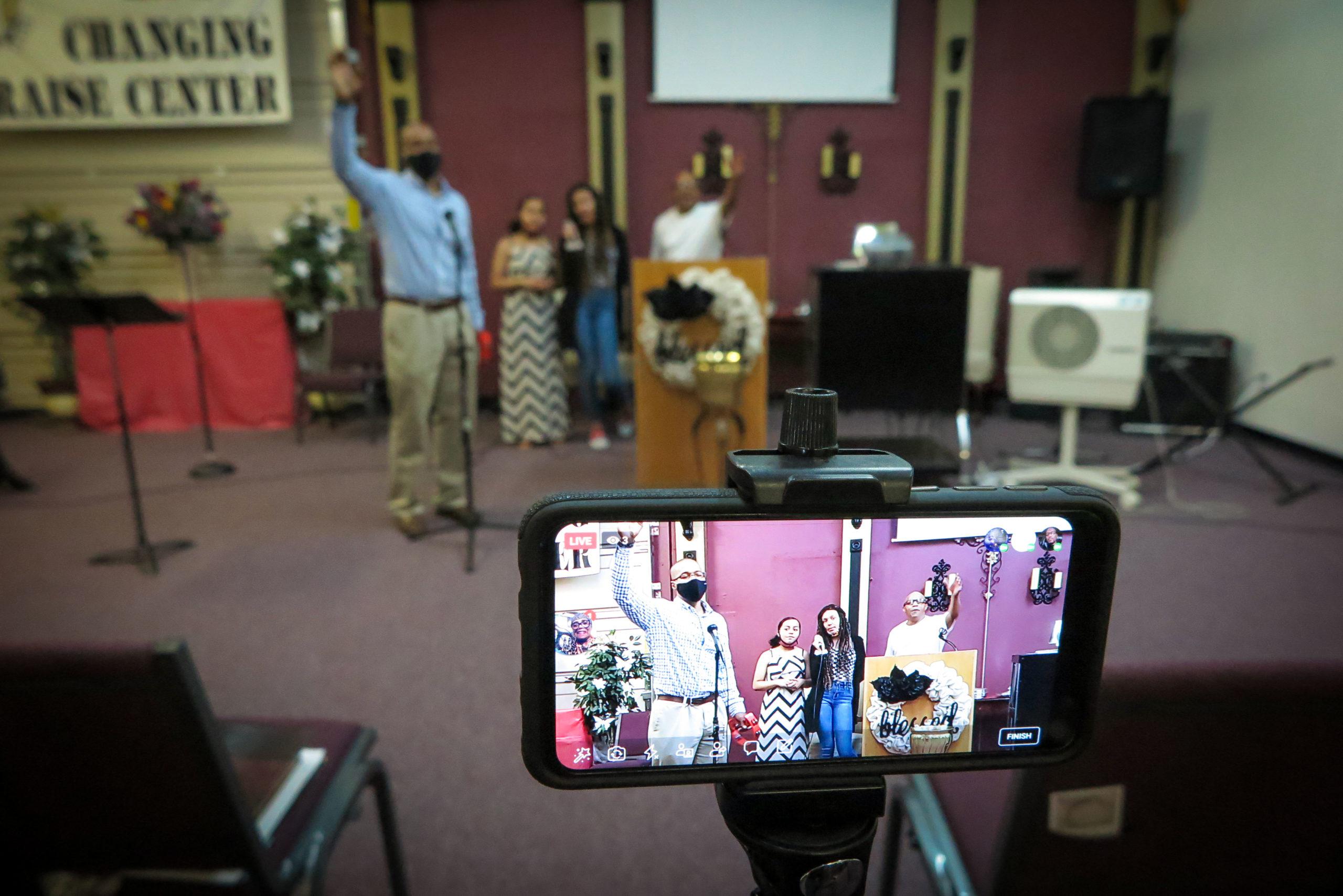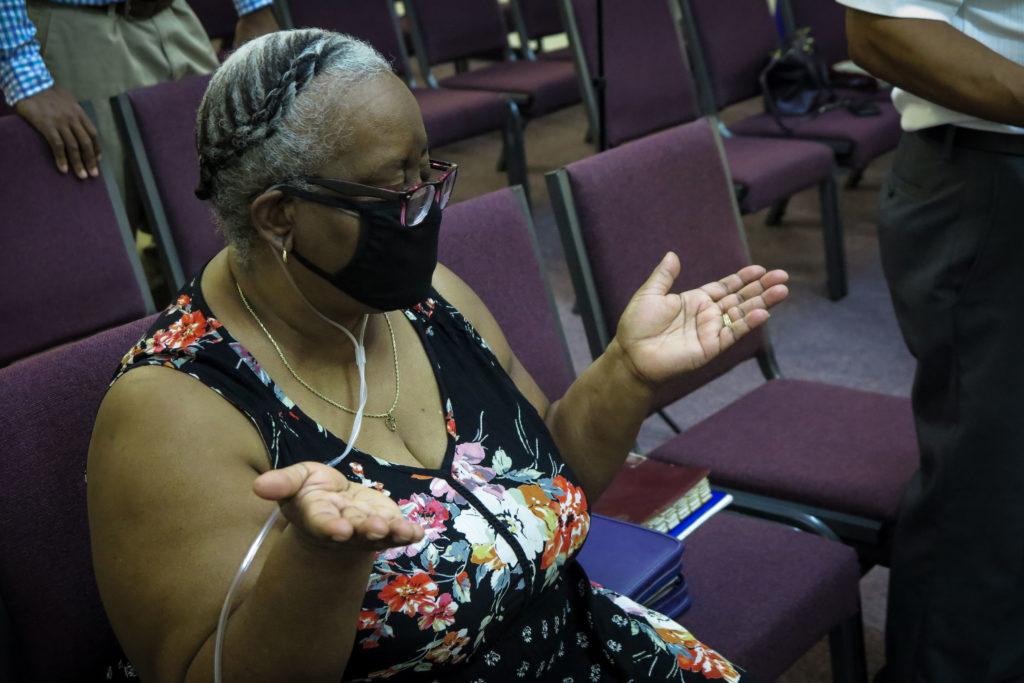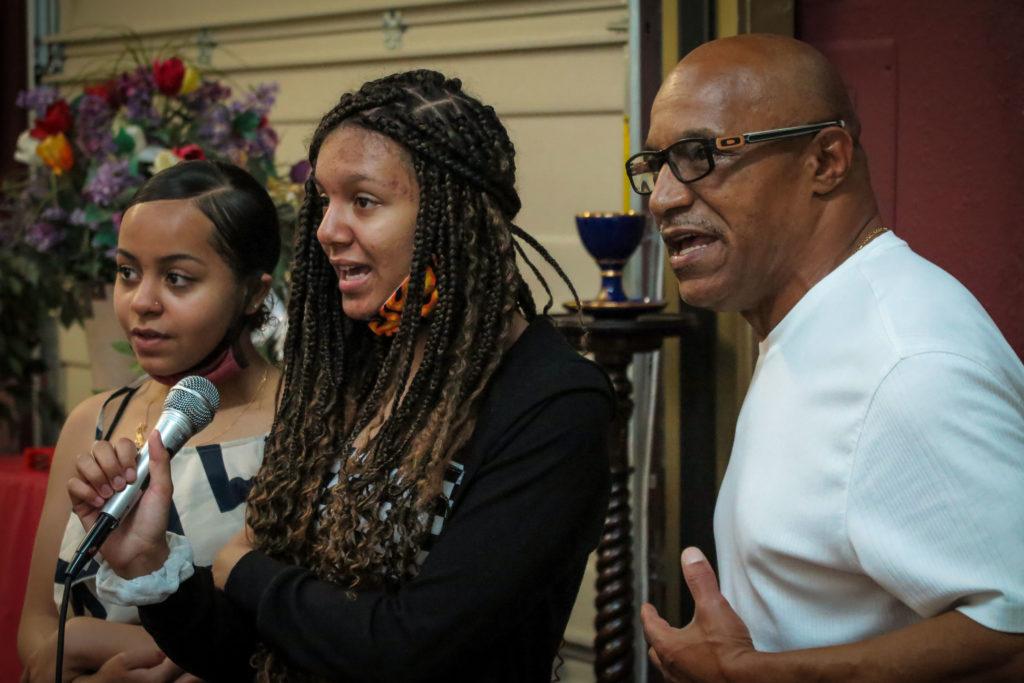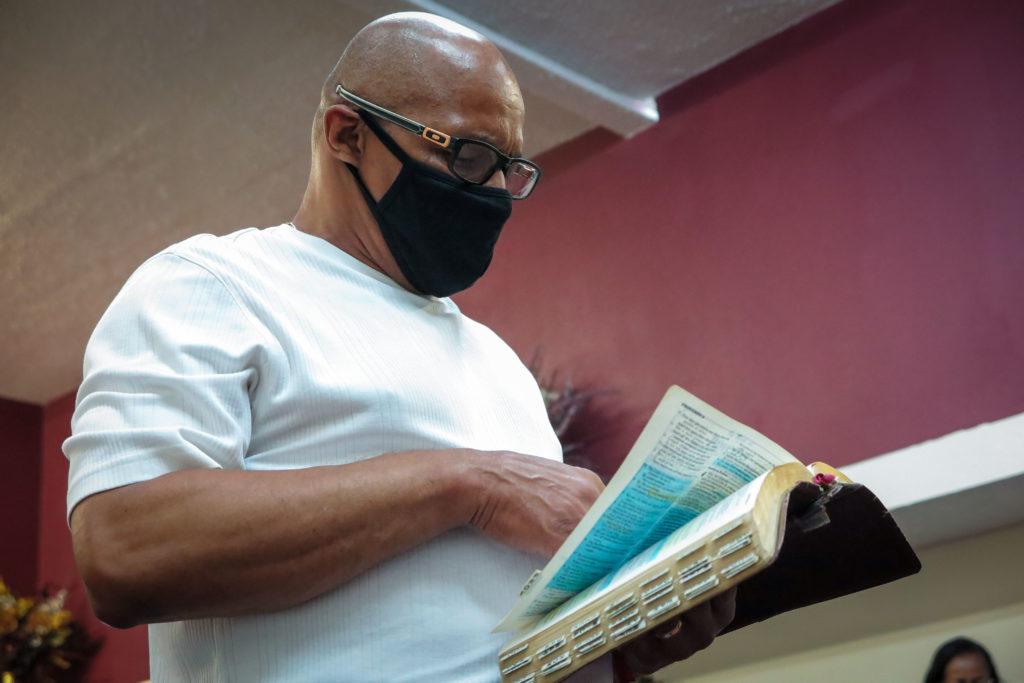
Pastor Terry Thomas wanted to stand alongside those protesting to make their voices heard on police brutality against African Americans. There have been weeks of national demonstrations after the death of George Floyd at the hands of Minneapolis police officers.
Thomas, who is black himself, was a constant figure in the 2019 demonstrations that decried the Colorado Springs police shooting of De’Von Bailey. This time, though, the 65-year-old opted not to physically protest due to concerns from the coronavirus.
“My heart is in the streets and I feel like I have a word for the people,” Thomas said. “But, I will not, not even for the cause, will I compromise my wife’s health.”
His 65-year-old wife, Tommie, has both a respiratory and cardiac condition. They are the types of pre-existing conditions that make one particularly susceptible to COVID-19.

What Thomas was finally able to do, for the first time in three months, was provide in-person services at his Lifting Up Jesus Church. Almost three years old now, the church shares a modest space in a renovated auto body shop with the Life Changing Praise Center, a primarily Hispanic church that has operated for 15 years.
After the Praise Center wrapped up its services, Thomas then set to work to transition the space for his congregation. In the COVID-19 era, transitioning means sanitizing. Thomas and his family members spent the time between the two churches’ services wiping down the bathrooms and preparing hand sanitizer, latex gloves and disposable face masks for their congregation.
He said his followers still had a lot of fear about the pandemic and he didn’t expect his usual crowd.
“If I wasn’t the pastor, I don’t know if I would have been here today,” Thomas said.
The pastor’s daughter, Mimi Hill, agreed with the sentiment. “I think if he wasn’t my dad, I’d probably just watch at home from Facebook,” she said.

Those online streams of his sermons have been the surprising silver lining to the pandemic. It’s a new development for the church that has led to “money coming in from all over the place, all over the country” during the pandemic.
In fact, the donations from the growing online audience have actually surpassed what was given during in-person services before the coronavirus changed the world, Thomas said.
For the first sermon physically back in his church, Thomas told the online viewers through a phone set up on a tripod in the aisle that it was indeed safe to come back to the pews, that precautions against the pandemic were being taken.
After songs and remarks from his associate pastor, Thomas’ sermon lasted a full hour and dealt deeply with the national uproar over George Floyd’s death. It was a lengthy discussion of what he called a “false balance” in America.
A CPR investigation in early 2020 found that black Coloradans, who are 4 percent of the state’s total population, make up 11 percent of police shooting deaths.
“When you see inequity, when you see unfairness, when you see people not playing by the rules, you should come up and say it and not in the name of the Democrats and not in the name of the Republicans but in the name of the Lord,” Thomas said. “Somehow America didn’t get the message that Black Lives Matter too.”

Thomas said almost the same thing after De’Von Bailey’s shooting. Yet, he sees hope in 2020, that it isn’t just black Americans chanting in the streets.
“I see more white people saying enough is enough than I even do black people,” he said.
That buy-in across racial lines has been needed for systemic change in the past and Thomas expects it will be needed again.









